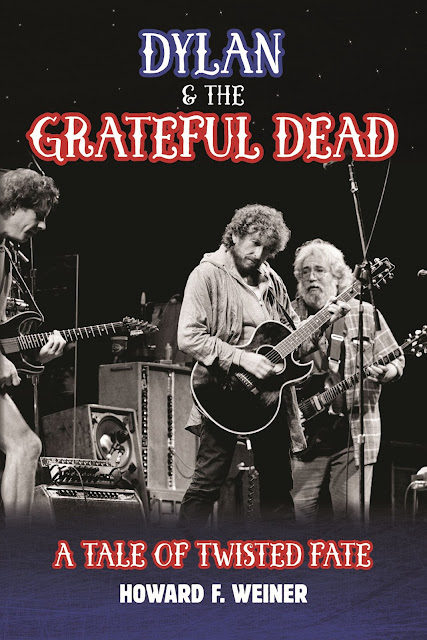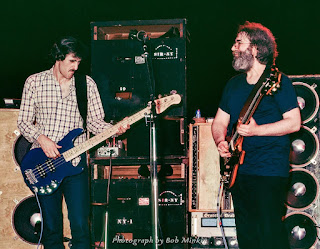An excerpt from Dylan and the Grateful Dead: A Tale of Twisted Fate.
Strike
another match, go start anew. It’s all over now, baby blue. The final lines
of Dylan’s last record make the perfect intro to his next album, Highway 61 Revisited. A gunshot drum beat
hurls the listener into “Like a Rolling Stone.” Dylan’s staring anew with the fervor
of a starved animal sprung from a cage to feast on a carcass of meat. Going on the
offensive, Dylan howls, “Once upon a time you dressed so fine, threw the bums a
dime in your prime. Didn’t you?” Dylan races forth as if this is his last chance
to vent and the clock is ticking. The song is a complex mix of anger, defiance, and gloating, but above all, it’s liberating—a loss of innocence
that yields excitement. This song changed lives. The masses heard,
felt, and digested Dylan’s diatribe.
The holy anthem of rock and roll emanated
from what Dylan described as, “This long piece of vomit, 20 pages long, and out
of it I took ‘Like a Rolling Stone’ and made it as a single.” Another unexpected
twist of luck was the arrival of Al Kooper on organ. Producer Tom Wilson invited
Kooper down to watch the recording session because Al was a big Dylan fan. The ambitious
Kooper arrived early with an electric guitar and plugged in, hoping to look like
a studio musician hired to be there. When Kooper heard the real guitar player, Mike
Bloomfield, his dream of playing on the record was all but dead.
Later in the session, when Paul Griffin switched from organ to piano, Kooper
occupied the bench behind the organ. Wilson realized what Kooper was up to, but
he let him slide. When Dylan and company were listening to the take, Dylan asked
Wilson to turn up the organ. Wilson sighed, “That cat’s not an organ player."
 Dylan
replied, “Hey, now don’t tell me who’s an organ player and who’s not. Just turn
the organ up.” Kooper hesitated a fraction of a second before each chord change
to make sure he was playing the right chord. The slight hesitation and the soulfulness
of Kooper’s playing gave “Like a Rolling Stone” a penetrating and majestic sound.
Dylan
replied, “Hey, now don’t tell me who’s an organ player and who’s not. Just turn
the organ up.” Kooper hesitated a fraction of a second before each chord change
to make sure he was playing the right chord. The slight hesitation and the soulfulness
of Kooper’s playing gave “Like a Rolling Stone” a penetrating and majestic sound.  Commenting on “Like a Rolling Stone,” Paul McCartney said, “It seemed to
go on and on forever. It was just beautiful…He showed all of us that it was
possible to go a little further.”
Commenting on “Like a Rolling Stone,” Paul McCartney said, “It seemed to
go on and on forever. It was just beautiful…He showed all of us that it was
possible to go a little further.” A TALE OF TWISTED FATE AVAILABLE ON AMAZON







No comments:
Post a Comment